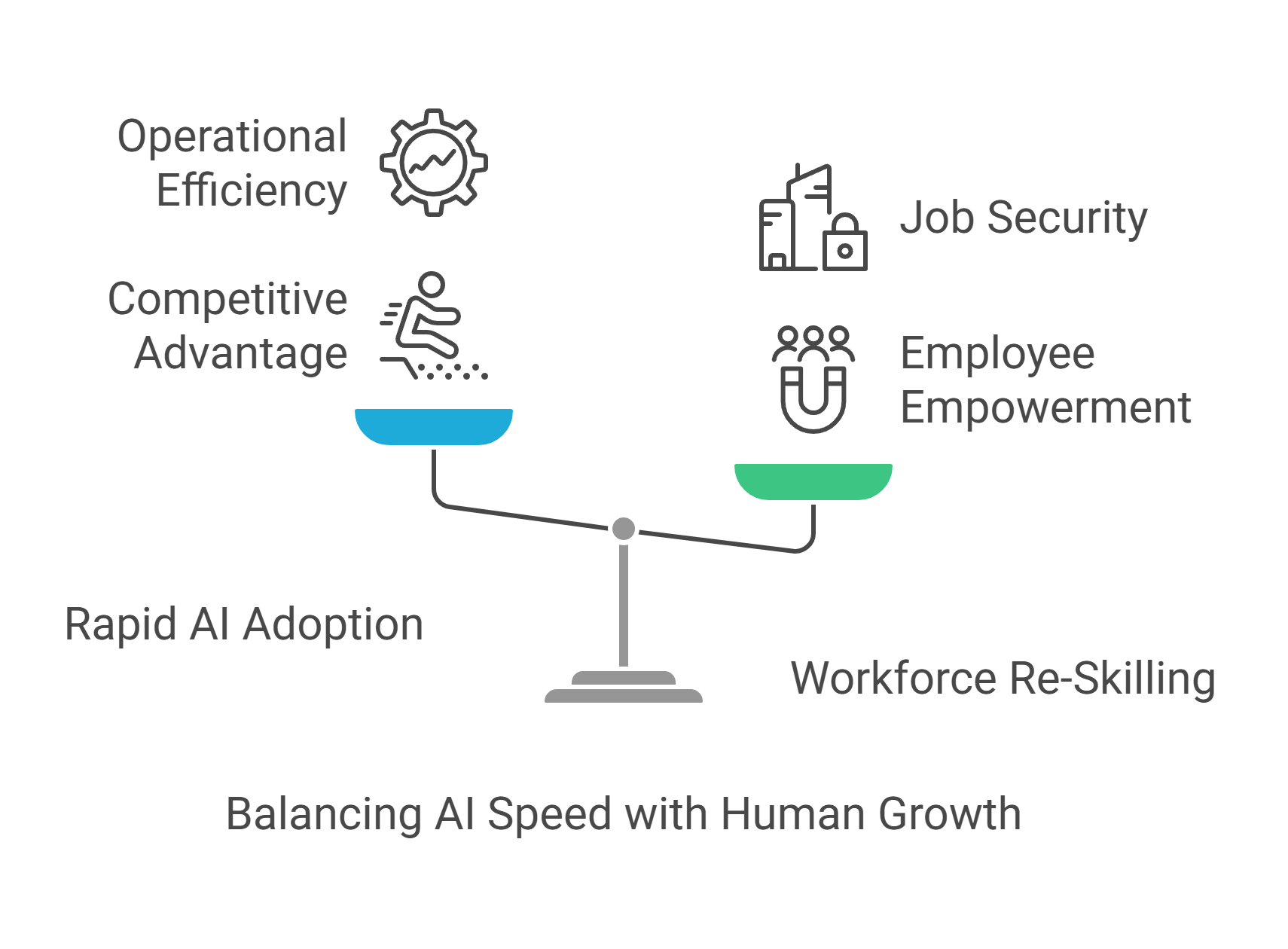AI, Human Rights & ESG: Why Workforce Re-skilling is Essential for Ethical AI Adoption
AI is reshaping our workplaces and our lives at breathtaking speed. Yet, beneath this technological revolution lies a deep, often overlooked truth: while AI has the power to transform productivity, innovation, and efficiency, it’s ultimately humans who determine if its impact will be empowering or exploitative.
AI Won’t Take Jobs—But Short-Sighted Capitalists Might
There's a common narrative that AI is "taking jobs," similar to how cars replaced horse-drawn carriages. But the analogy is flawed. Cars replaced physical labour; AI, especially when combined with robotics and drone technology, is encroaching on both cognitive and physical labour—tasks involving decision-making, creativity, complex problem-solving, as well as manual work. More critically, new jobs created in the AI era might themselves soon be best done by AI, creating a precarious cycle.
I heard this recently, and it stopped me in my tracks:
"AI won’t take people’s jobs. Capitalists will." - Scott Hanselman
When companies prioritise short-term profit over long-term investment in their workforce, layoffs driven by AI-created efficiencies can seem inevitable. But this is a decision—an active choice—not an unavoidable outcome.
The Human Cost of Ignoring Workforce Development
Brad Smith, Vice Chair and President at Microsoft, highlighted a startling fact about the Digital Skills divide: spending on employee skill development has essentially flatlined since the Y2K era. Meanwhile, technology, especially AI, has accelerated exponentially. This gap—between rapid technological advancement and stagnant human development investments—poses a severe threat to workforce stability, innovation, and morale.
A New ESG Perspective: Prioritizing the "S" in ESG
Companies adopting AI must recognise this shift not only as an economic or technological challenge but as a human rights issue. The Social component of ESG (Environmental, Social, Governance) compels organisations to acknowledge their responsibility to support the dignity, security, and well-being of their workforce.
Key Social ESG responsibilities include:
Responsible Transitioning: Companies should ensure ethical, supportive pathways for employees as they integrate AI into their operations rather than resorting to abrupt job cuts.
Human-Centric Innovation: Prioritising AI that augments human creativity, judgment, and strategic thinking rather than replaces it.
Equitable Sharing of Gains: Productivity and profitability from AI-driven efficiencies must benefit all stakeholders, especially the workforce, through profit-sharing, skills investment, and career mobility.
Governance and AI: Ensuring Integrity and Accountability
The ESG framework also highlights the critical role of Governance. Good governance ensures that AI deployment aligns with broader organisational ethics, transparency, and stakeholder value rather than short-term gains. It demands accountability from leaders to invest thoughtfully in AI alongside comprehensive employee development programs.
Strong governance practices include:
Transparent decision-making about AI strategies.
Ethical oversight to prevent bias and unfair outcomes.
Stakeholder-inclusive planning, especially involving those most affected by AI-driven changes.
AI Adoption Isn't Just a Race—It's a Relay
Organisations must adopt AI rapidly to remain competitive. However, this speed must be paired with equally swift and intentional investments in workforce re-skilling and continuous learning. Google's famed "20% projects"—where employees dedicated a fifth of their time to innovative, creative exploration—demonstrate how combining human and AI-driven innovation can create transformational products like Gmail and AdSense.
The Future is Human-Centered
This much is clear:
"AI efficiency without human rights accountability isn’t progress—it’s exploitation."
Organisations must move quickly to adopt AI, but they must do so responsibly, ethically, and with the future of their workforce front of mind. By embedding strong Social and Governance practices within their AI strategies, companies can ensure that the AI revolution serves humanity rather than exploiting it.
I’m excited to see how AI will amplify human potential—not diminish it.
Share this post


